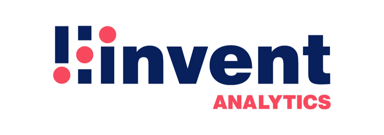Cognitive Ability Test
A cognitive ability test is a standardized tool designed to assess an individual's mental capabilities. It focuses on information processing, critical thinking, and decision-making. These tests measure mental agility, not just acquired knowledge. 🎯
These tests usually involve questions that assess skills like understanding numbers, language, and logical patterns. Some of them also measure how quickly they process information and stay focused.
Why use them? Because the way someone thinks can really show how well they’ll do, especially in roles where quick learning and adaptability are key. These tests give you a clearer, more honest look at how someone handles challenges.
These tests offer HR important insights into a candidate's mental capabilities. They identify individuals who can think strategically, innovate, and make sound decisions under pressure: and contribute to long-term organizational success.
Cognitive Ability Test vs Skills Tests
While both cognitive ability tests and skills tests play a role in hiring, they have different purposes. 📌
Skills tests show a candidate's current abilities, their immediate job readiness. Cognitive tests, however, reveal their mental agility, their capacity to learn and adapt.
Imagine it as measuring a candidate's current toolkit versus their potential to build and utilize new tools. Skills tests tell if they can use the tools they have; cognitive tests tell how quickly they can learn to use new ones and adapt to changing demands.
Key Components of Cognitive Ability Tests
Some tests are all about how well someone solves problems, while others focus on how fast they think or spot patterns. Let's explore the primary components usually included in comprehensive cognitive ability assessments 👇:
Verbal Reasoning
Verbal reasoning tests measure how well someone understands written information. They show how easily a person can read between the lines, recognize patterns in text, and draw logical conclusions.
In these tests, candidates might answer questions about a short passage, complete analogies, or find relationships between words. Strong verbal reasoning skills are especially important for jobs that involve a lot of reading, writing, presenting, or negotiating.
These tests help find candidates who can handle detailed instructions, communicate well, and quickly grasp information from written material.
Numerical Reasoning
This part isn’t just about basic math: it’s about how someone works with numbers. It looks at if they can make sense of data, spot patterns, and use that to make smart decisions. It’s about being able to interpret data in a way that actually helps.
This is important for data-driven jobs. You need people who can take numbers and turn them into practical insights and plans.
For HR, these tests give a practical sense of how someone thinks with numbers. They help identify candidates who can confidently work with data and approach problems with a clear, logical mindset.
Logical Reasoning
Logical reasoning is about understanding how a candidate's mind deals with complex problems. Can they spot patterns, think things through logically, and stay focused when things aren’t so clear? It’s all about seeing how well they can make decisions that make sense.
This is important for roles where good judgment matters. You need people who can cut through all the chaos, spot the patterns, and make strong decisions when things get tough.
For HR, these tests give a practical way to see how someone thinks on their feet. You're looking for people who can handle complex problems with clarity and reason, and bring real, logical solutions to the table.
Spatial Reasoning
Spatial reasoning is the ability to imagine how things will fit together in your mind. It’s something architects and engineers use when designing buildings or machines. Designers also rely on it to create products that not only work well but also look great. Even in manufacturing, workers use spatial reasoning to piece parts together efficiently.
That’s why companies sometimes test for it. It’s less about memorizing facts and more about how well you can "see" and manipulate space in your head. HR professionals find spatial reasoning tests valuable when hiring for positions that require visual thinking, design work, or understanding complex physical systems.
Processing Speed
Processing speed tests show how quickly a candidate's mind operates under pressure. They gauge their mental reflexes, not just their intelligence. Can they rapidly discern patterns, react to changing information, and maintain composure in fast-paced environments?
This is important for roles demanding swift decision-making. They help identify individuals who possess cognitive ability that can also apply it with high speed.
For HR, these tests offer a practical measure of mental agility, predicting a candidate's success in high-pressure, time-sensitive positions.
Memory and Attention
Memory and attention tests help see how well someone can stay focused and remember key details. These assessments might ask candidates to recall a series of numbers, recognize patterns, or complete tasks that require concentration.
Think about roles where missing a small detail could create big problems like customer service, finance, or healthcare. A good memory and sharp focus help employees follow instructions, stay on top of multiple tasks, and manage complex processes.
These tests are useful for HR for finding candidates who can handle fast-paced work, quickly get new information, and keep their energy up even when things get repetitive or challenging.
Types of Cognitive Ability Tests Used in HR
HR professionals have access to a wide variety of cognitive ability tests made for different purposes and contexts. Understanding the different types available can help you choose the most appropriate assessment for your hiring needs 📌:
General Cognitive Ability Tests
General cognitive ability tests, or g-factor tests, are kind of a way to see how sharp someone is overall. They usually mix up questions on things like reading, math, and logic: so, you get to see how a person handles different types of challenges.
These tests are really useful for HR teams because they’re quick and give a clear idea of a candidate’s potential. They’re especially handy when you’re hiring for someone who can learn fast and adapt easily.
Industry-Specific Tests
Industry-specific cognitive tests zero in on the mental skills that really matter for a particular job. Instead of measuring general intelligence, these tests are made to match the actual demands of different industries.
For example, engineers and architects might take tests that assess spatial reasoning, while customer service roles prioritize verbal reasoning and quick thinking. In finance, attention to detail and numerical reasoning are key.
These tests offer HR professionals a more precise way to identify candidates with the right mental strengths for a given role. They go beyond general intelligence and help employers find people who can truly succeed in their specific industry.
Gamified Assessments
Gamified cognitive assessments make hiring feel like an interactive challenge. Candidates solve puzzles, complete tasks, or work through scenarios that test their thinking skills instead of answering multiple-choice questions.
People are more likely to show how they actually think and solve problems rather than just how well they handle test anxiety when they are engaged and at ease. That’s why many companies prefer this approach. It gives them a clearer picture of a candidate’s real abilities while making the process feel more natural and even a little fun.
For HR teams, gamified tests can make a big difference. They keep candidates from dropping out of the process, make the company seem more forward-thinking, and can even help reduce bias by focusing on natural cognitive skills rather than memorized knowledge.
Custom Tests
Custom cognitive ability tests are developed specifically for a particular organization or role. To make them, companies usually team up with experts like industrial-organizational psychologists, who know how to create tests that fit the exact challenges employees will face every day.
These custom tests are a game-changer for HR pros. They give a much more accurate picture of how well someone will do in a role, which is way more useful than generic tests. They cost more but for companies with unique jobs or big hiring needs, it’s totally worth it. Even small improvements in hiring can make a huge difference.
Tips for Implementing Cognitive Ability Tests
Choose the right test. Select a test that aligns with the job requirements and company needs. Different roles require different cognitive skills.
Ensure fairness. Avoid bias by using standardized tests that are scientifically validated. Consider cultural and linguistic differences when selecting assessments.
Combine with other hiring methods. Cognitive ability tests should not be the sole determinant in hiring. Use them alongside interviews, skills assessments, and behavioral tests.
Set clear expectations. Inform candidates about the test format and purpose to reduce anxiety. Providing sample questions can help them prepare.
Analyze results effectively. Use test results to complement other hiring criteria rather than as a pass-or-fail metric. Look for patterns that indicate a candidate’s potential for success in the role.
Conclusion
Hiring the right people is all about understanding how they think, learn, and tackle problems. That’s why more companies are turning to cognitive ability tests. They give a clearer view of a candidate’s potential. These tests can make the hiring process more fair and effective and help employers find the best person for each role when used the right way.
These tests give employers an edge by highlighting candidates with real potential. And with technology constantly evolving, cognitive assessments will only get smarter, providing even clearer insights into a person’s abilities and future performance. ⭐️
Get a demo
- Quickly find top candidates with smart application management
- Improve team collaboration using built-in communication and workflows
- Offer a smooth candidate experience to strengthen your employer brand
- Count on 24/7 support for a hassle-free hiring process
- Quickly find top candidates with smart application management
- Improve team collaboration using built-in communication and workflows
- Offer a smooth candidate experience to strengthen your employer brand
- Count on 24/7 support for a hassle-free hiring process
"We truly felt the speed difference. Everything was smoother, and candidate feedback was much more positive. It made our jobs easier."

Trusted by 100+ teams
Get Informed,F.A.Q.
Revolutionize your hiring process with our transformative Applicant Tracking System (ATS.)
Suggested keywords
What is Cultural Fit?
Let's talk numbers - 89% of employers put cultural fit at the top of their hiring checklist. Pretty huge. But wait a second... what exactly does cultural fit mean in today's fast-moving workplace?The ...
Employee NPS Benchmarks
An Employee NPS benchmark is basically a way to see how your company’s employee satisfaction stacks up against others. It helps turn your eNPS score into something useful by giving it context. 📌You'r...
Salary Benchmarking
Salary benchmarking is basically figuring out if what you're paying your team makes sense compared to what others are offering for similar roles. It’s like checking the going rate before you buy somet...















